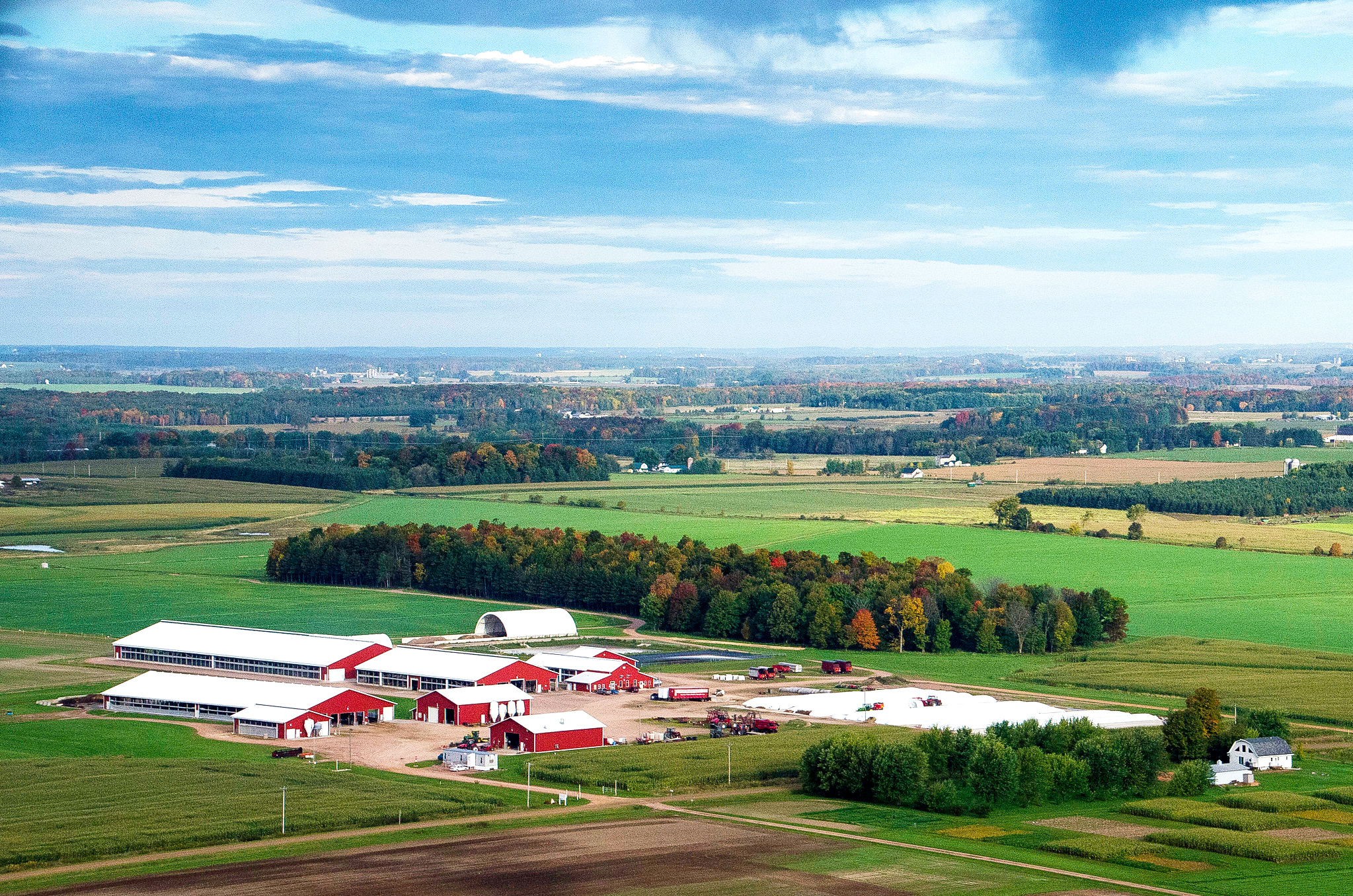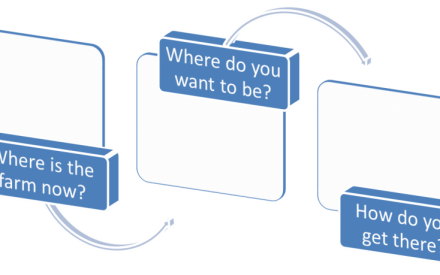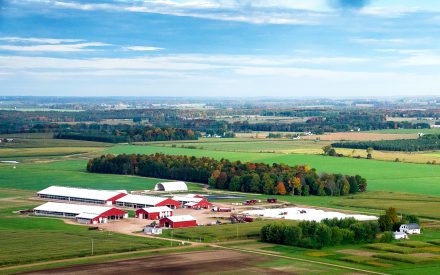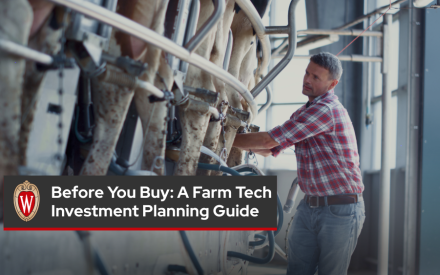Farm diversification typically reduces large year-to-year variations in income and may ensure adequate cash flow for meeting production costs, debt obligations, and family living needs. However, acquiring knowledge about an alternative business, expertise on new production or marketing practices, or information on equipment may be costly. Expanding into new areas or experimenting with new enterprises will increase capital investment requirements.
The following resources help farmers assess feasibility and critical success factors of new or additional enterprises including value-added production, and marketing and business strategies.
National Information Resource for value-added agriculture
The Agricultural Marketing Resource Center (AgMRC) is a national virtual resource center for value-added agricultural groups. The purpose and mission of the AgMRC is to provide independent producers and processors with critical information to build successful value-added agricultural enterprises.
The website contains links and AgMRC developed materials on everything from networks of ethanol cooperatives to organic beef producers to value-added worm businesses. This extensive collection of resources and tools can help anyone involved in value-added agriculture develop and improve any aspect of their business.
Institute for Business & Entrepreneurship, University of Wisconsin
The University of Wisconsin System’s Institute for Business & Entrepreneurship helps entrepreneurs, businesses and economic development professionals across the state to achieve their goals through expert consulting, educational resources and a dynamic statewide network.
The Food Finance Institute (FFI), a partner of the Institute, leverages and supports a collaborative network of professionals focused on building and funding profitable businesses in the food, beverage and value-added agriculture sector. We work to make sophisticated financial technical assistance available for every growing food, beverage and value-added agriculture enterprise. The Wisconsin Small Business Development Center (SBDC), also a partner of the Institute, is a statewide network supporting entrepreneurs and business owners through no-cost, confidential consulting and business education. Our regional expertise is accessible to anyone anywhere across 13 locations. We provide specialized resources and helps clients craft personalized plans to grow their businesses.
Building a Sustainable Business: A Guide to Developing a Business Plan for Farms and Rural Businesses
Building a Sustainable Business: A Guide to Developing a Business Plan for Farms and Rural Businesses brings the business planning process alive to help today’s alternative and sustainable agriculture entrepreneurs transform farm-grown inspiration into profitable enterprises. Sample worksheets lend a practical perspective and illustrate how real farm families set goals, researched processing alternatives, determined potential markets, and evaluated financing options. Blank worksheets help the reader develop a detailed, lender-ready business plan or map out strategies to take advantage of new opportunities.
Local food research and development
The Agricultural Marketing Service (AMS) administers programs that create domestic and international marketing opportunities for U.S. producers of food, fiber, and specialty crops. AMS also provides the agriculture industry with valuable services to ensure the quality and availability of wholesome food for consumers across the country.
Safety, Licensing & Regulations for food/ag entrepreneurs
The Wisconsin Department of Agriculture, Trade and Consumer Protection, Division of Food and Recreational Safety is responsible for enforcing food regulations and inspecting food establishments.
Many people dream of transforming their favorite recipes into the next profitable taste sensation. After all, it seems like plenty of well-known people have done it and become household names. So, if starting a food-oriented small business is more than just a dream, make sure you are licensed, know the rules and follow them.
Food Safety & Health
Wisconsin FIRST — Food Science and Food Safety information for consumers throughout the state and the Safe & Healthy Food for Your Family websites from Barb Ingham, Food Safety Specialist with Extension, both feature information on safely preserving food, starting a food business, and a frequently updated blog discussing current topics around food safety.
The HACCP approach to food safety emphasizes the following actions in addressing potential hazards:
- Prevention
- Control
- Documentation (Record Keeping)
It is the primary goal of every food processor to prevent the development of bacterial, chemical or physical hazards in the food they produce. Prevention is best achieved by controlling the processing environment and procedures to keep food safe. Documentation, or keeping records of actions taken at key steps in the process assures that proper control measures were applied and provides the evidence to prove it. These practices are also the heart of food safety under HACCP. Visit the UW Madison Meat HACCP Center for Meat Processing Validation for model plans, documentation, compliance guidance and more.
Wisconsin Local Food Marketing Guide
The Wisconsin Local Food Marketing Guide is intended as a resource for farmers and producers. It will acquaint you with some of the opportunities you can use to market your food products. The guide also provides information regarding the licensing and labeling required by product and point of sale. You will also learn from those who pioneered innovative production and marketing approaches. Understanding what’s involved in local food marketing will better prepare you for success.
Guide for Legal Resiliency
It may not be the first thing you think about, but there are legal implications for any new farm enterprise. How will it affect your liability risk and insurance needs? What type of business structure will work best for this enterprise? What legal obligations do you have to employees, both within and outside the family? Farm Commons offers resources to help you anticipate and think through these and other legal questions. While they are not a substitute for consulting a professional such as a lawyer or tax accountant, their free resources can help you figure out what questions you need to ask and what professional assistance you may need to seek.



 Identifying strategies to maximize potential and minimize risk
Identifying strategies to maximize potential and minimize risk Three questions to ask yourself when planning the future of a farm business
Three questions to ask yourself when planning the future of a farm business Creating a farm’s operating agreement: time well spent
Creating a farm’s operating agreement: time well spent Before You Buy: A Farm Tech Investment Planning Guide
Before You Buy: A Farm Tech Investment Planning Guide